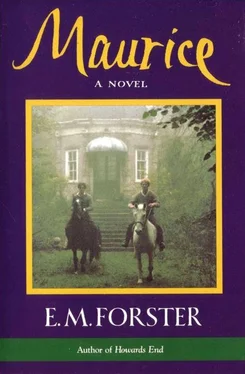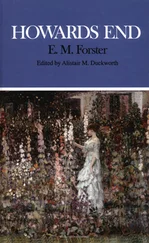She was silent, then asked him how old he was.
"Twenty-four tomorrow."
"Well, you're very hard for your age."
"Just now you said I was horrible. You're letting me off very easily, Mrs Durham!"
"Anyhow, you're set, which is worse."
She saw him frown, and, fearing she had been impertinent, turned the talk on to Clive. She had expected Clive to be back by now, she said, and it was the more disappointing because tomorrow Clive would have to be really away. The agent, who knew the constituency, was showing him round. Mr Hall must be forgiving, and he must help them in the cricket match.
"It rather depends upon some other plans… I might have to…
She glanced at his face with a sudden curiosity, then said, "Wouldn't you like to see your room? — Archie, take Mr Hall to the Russet Room."
"Thanks… Is there a post out?"
"Not this evening, but you can wire. Wire you'll stop… Or oughtn't I to interfere?"
"I may have to wire — I'm not quite sure. Thanks frightfully."
Then he followed Mr London to the Russet Room, thinking "Clive might have… for the sake of the past he might have been here to greet me. He ought to have known how wretched I should feel." He didn't care for Clive, but he could suffer from him. The rain poured out of a leaden sky on to the park, the woods were silent. As twilight fell, he entered a new circle of torment.
He stopped up in the room till dinner, fighting with ghosts he had loved. If this new doctor could alter his being, was it not his duty to go, though body and soul would be violated? With the world as it is, one must marry or decay. He was not yet free of Clive and never would be until something greater intervened.
"Is Mr Durham back?" he inquired, when the housemaid brought hot water.
"Yes, sir."
"Just in?"
"No. About half an hour, sir."
She drew the curtains and hid the sight but not the sound of the rain. Meanwhile Maurice scribbled a wire. " 'Lasker Jones, 6 Wigmore Place, W., " he read. " 'Please make appointment Thursday. Hall. C/o Durham, Penge, Wiltshire. "
"Yes, sir."
"Thanks so much," he said deferentially, and grimaced as soon as he was alone. There was now a complete break between his public and private actions. In the drawing-room he greeted Clive without a tremor. They shook hands warmly, Clive saying, "You look awfully fit. Do you know whom you are going to take in?" and introducing him to a girl. Clive had become quite the squire. All his grievances against society had passed since his marriage. Agreeing politically, they had plenty to talk about.
On his side, Clive was pleased with his visitor. Anne had reported him as "rough, but very nice" — a satisfactory condition. There was a coarseness of fibre about him, but that didn't matter now: that horrible scene about Ada could be forgotten. Maurice also got on well with Archie London — important, for Archie bored Anne and was the sort of man who could fix on to someone. Clive assigned them to each other, for the visit.
In the drawing-room they talked politics again, convinced every one of them that radicals are untruthful, and socialists mad. The rain poured down with a monotony nothing could disturb. In the lulls of conversation its whisper entered the room, and towards the end of the evening there was "tap, tap" on the lid of the piano.
"The family ghost again," said Mrs Durham with a bright smile.
"There's the sweetest hole in the ceiling," cried Anne. "Clive, can't we leave it?"
"We shall have to," he remarked, ringing the bell. "Let's shift our pianoforte though. It won't stand much more."
"How about a saucer?" said Mr London. "Clive, how about a saucer? Once the rain came through the ceiling of the club, I rang the bell and the servant brought a saucer."
"I ring the bell and the servant brings nothing," said Clive, pealing again. "Yes, we'll have a saucer, Archie, but we must move the piano too. Anne's dear little hole may grow in the night. There's only a lean-to roof over this part of the room."
"Poor Penge!" said his mother. All had risen to their feet, and were gazing at the leak. Anne began to probe the piano's entrails with blotting paper. The evening had broken up, and they were well content to make fun about the rain, which had sent them this hint of its presence.
"Bring a basin, will you," said Clive, when the bell was answered, "and a duster, and get one of the men to help shift the piano and take up the carpet in the bay. The rain's come through again."
"We had to ring twice, ring twice," remarked his mother.
"Le delai s'explicjue," she added, for when the parlourmaid returned it was with the keeper as well as the valet. "C'est toujours comme çа quand… — we have our little idylls below stairs too, you know."
"You men, what do you want to do tomorrow?" said Clive to his guests. "I must go canvassing. Don't come too. It's beyond words dull. Like to take out a gun or what?"
"Very nice," said Maurice and Archie.
"Scudder, do you hear?"
"Le bonhomme est distrait," said his mother. The piano had rucked up a rug, and the servants, not liking to raise their voices before gentlefolk, misunderstood one another's orders, and whispered "What?"
"Scudder, the gentlemen'll shoot tomorrow — I'm sure I don't know what, but come round at ten. Shall we turn in now?"
"Early to bed's the rule here, as you know, Mr Hall," said Anne. Then she wished the three servants good night and led the way upstairs. Maurice lingered to choose a book. Might Lecky's History of Rationalism fill a gap? The rain dripped into the basin, the men muttered over the carpet in the bay, and, kneeling, seemed to celebrate some obsequy.
"Damnation, isn't there anything, anything?"
" — ish, he's not talking to us," said the valet to the gamekeeper.
Lecky it was, but his mind proved unequal, and after a few minutes he threw it on the bed and brooded over the telegram. In the dreariness of Penge his purpose grew stronger. Life had proved a blind alley, with a muck heap at the end of it, and he must cut back and start again. One could be absolutely transformed, Risley implied, provided one didn't care a damn for the past. Farewell, beauty and warmth. They ended in muck and must go. Drawing the curtains, he gazed long into the rain, and sighed, and struck his own face, and bit his own lips.
35
The next day was even drearier and the only thing to be said in its favour was that it had the unreality of a nightmare. Archie London chattered, the rain dribbled, and in the sacred name of sport they were urged after rabbits over the Penge estate. Sometimes they shot the rabbits, sometimes missed them, sometimes they tried ferrets and nets. The rabbits needed keeping down and perhaps that was why the entertainment had been forced on them: there was a prudent strain in Clive. They returned to lunch, and Maurice had a thrill: his telegram had arrived from Mr Lasker Jones, granting him an appointment for tomorrow. But the thrill soon passed. Archie thought they had better go after the bunnies again, and he was too depressed to refuse. The rain was now less, on the other hand the mist was thicker, the mud stickier, and towards tea time they lost a ferret. The keeper made out this was their fault, Archie knew better, and explained the matter to Maurice in the smoking-room with the aid of diagrams. Dinner arrived at eight, so did the politicians, and after dinner the drawing-room ceiling dripped into basins and saucers. Then in the Russet Room, the same weather, the same despair, and the fact that now Clive sat on his bed talking intimately did not make any difference. The talk might have moved him had it come earlier, but he had been so pained by the inhospitality, he had spent so lonely and so imbecile a day, that he could respond to the past no longer. His thoughts were all with Mr Lasker Jones, and he wanted to be alone to compose a written statement about his case.
Читать дальше












